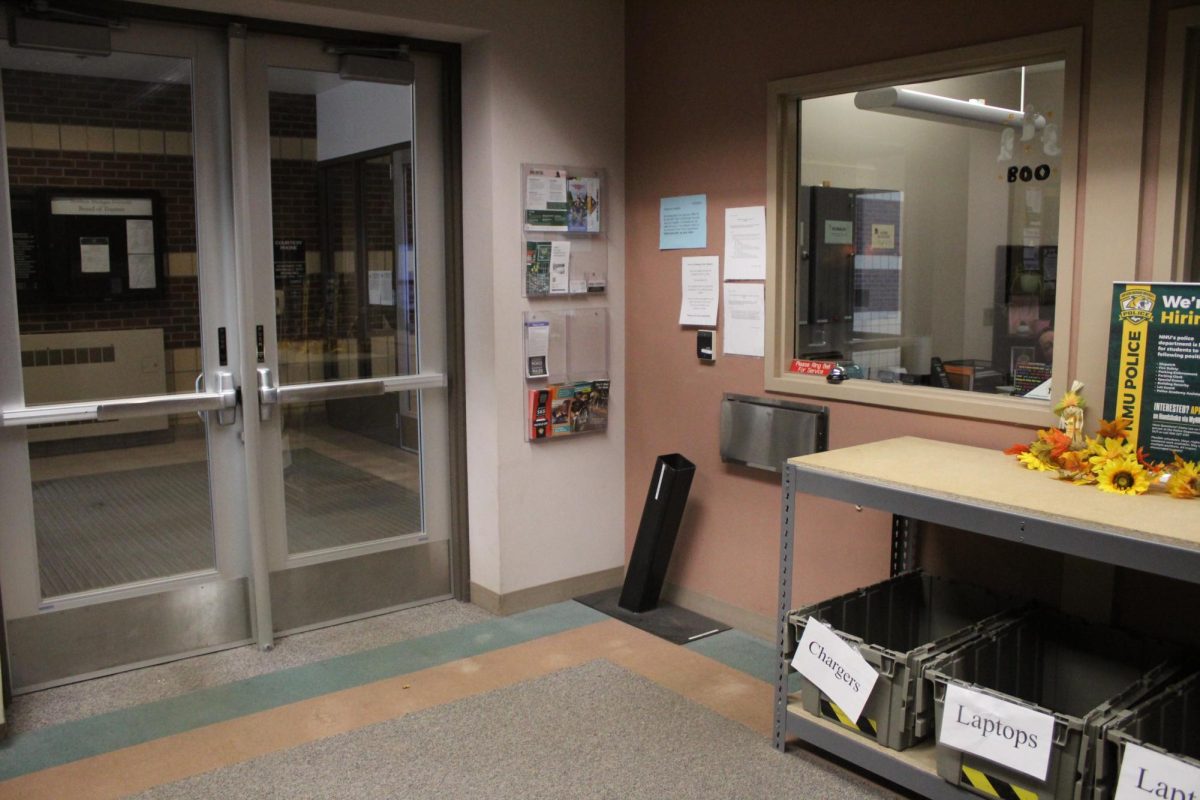Safe spaces on college campuses represent areas that are intended to be free of bias, conflict or criticisms and are safe havens from violent actions, ideas or conversations. But how can a courtyard represent a safe space when the First Amendment states that all Americans have the right to speak whenever and wherever, no matter what the topic may concern? This was the highlight from CEO of the Foundation for Individual Rights in Education (FIRE) Greg Lukianoff’s talk during his visit to NMU earlier this week.
The bestselling author and advocate for First Amendment rights spoke on “The Threat to Free Speech on Campus and What to Do About it” to a crowd of students, faculty and community members at 7 p.m. Monday, April 22, in Jamrich room 1100. Closing out the final lecture of the series hosted by the Center for Academic and Intellectual Freedom (CAIF), Lukianoff focused on six factors that are linked to the threat of campus speech and include: political correctness, administrators, federal government, the professionate, student illiberalism and the conservative outrage mob.
With his 2018 book “The Coddling of the American Mind: How Good Intentions and Bad Ideas are Setting Up a Generation for Failure,” which he coauthored with American social psychologist and professor Jonathan Haidt, Lukianoff derived from his work at FIRE and other national cases where free speech was restricted.
“Sometimes the attempts to make interactions between students smoother and less eventful actually result in people not being friends with people who are different from them which is very sad,” Lukianoff said. “When I talk about putting on your anthropology hat, [I mean] be curious about where this person is coming from, and I see so little of that on campuses when it should be the norm.”
Free speech needs to be taught during orientation, Lukianoff noted, explaining, not enough students understand their rights as Americans. Universities shouldn’t pamper students in not exposing them to other perspectives, because this kind of “dysfunctional, anti-CPT” teaching contributes to the increase in anxiety and depression among college students, he said.
Cognitive distortions are mental exaggerations people make such as labeling, overgeneralizing and blaming; and a way to overcome these distortions is to use the therapy mechanism of “talking back to them,” which in turn, intercepts those exaggerations.
It’s all about knowledge, protecting people who are bigots and bullies will not make students any safer, Lukianoff added.
The lecture followed by a Q&A including a question proposed by President Fritz Erickson who asked Lukianoff on whether “civility is a balancing factor,” to which the speaker answered with caution.
“Be careful of civility. If you make a general civility code for the entire university, to go back to John Stewart Mills, he says civility tends to take on the look of what the people in power think is allowable,” Lukianoff said. “If we think civility is the all-perfect answer to how we actually punish people who are being rude, then we have an issue with that.”























